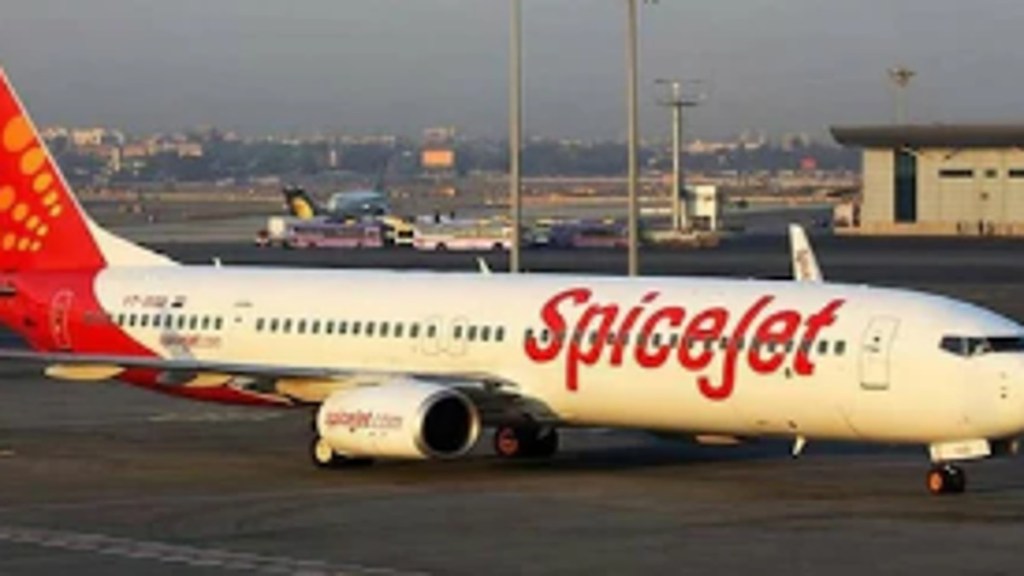In many ways Ajay Singh is back where he was in 2015 when he checked into a financially troubled airline. Only this time the problems at SpiceJet are far worse. The Marans might not have lost control of the low cost carrier had the government not stopped the sales of tickets and the banks been forthcoming with some Rs 600 crore. But Singh, principal shareholder and CEO of SpiceJet, probably needs more than five times the amount to keep it going.
Also, this time around, it’s not just about money. The lessors are unhappy as are passengers.
In an intensely competitive landscape where Indigo is flying high with a 60% plus market share, a rejuvenated Air India is upping the ante and the fledgling Akasa is snapping away at its heels, SpiceJet will not find it easy to do business. With just 23 aircraft in operation, the airline is losing market share in the world’s fastest growing market. Its share for July fell to 3.1% from 3.8% in June, less than a fourth of the 13.3% seen in January 2019. Akasa, on the other hand, has been reporting a share of 4.7-4.8% and is reportedly tanking up on capital.
To be sure, not all the financial problems are of the airline’s making. The grounding of the Boeing 737-8 Max planes worldwide in March 2019, after two tragic incidents involving Lion Air and Ethiopian Airlines, was a big blow to its operations; SpiceJet’s hangars had some 13 MAX 8 aircraft. The pandemic in 2020 exacerbated the pain. Where once SpiceJet was looking to be flying 200 aircraft, it is now left with a tenth of that.
Singh has been able to negotiate settlements with some lessors like Carlyle Aviation Partners for instance, to whom it reportedly repaid some dues. Other aircraft lessors, however, have taken the matter to the courts determined to reclaim their aircraft. The litigation has spilled over to the insolvency tribunals where there is an application under the IBC (Insolvency and Bankruptcy Code). Singh believes there is a fair chance of a favourable outcome.
But then he has been able to keep the carrier going even though the rating agencies had downgraded the company’s loans well before the pandemic set in. In October 2018, CRISIL downgraded the company’s bank facilities to BB-/negative/A4 from BBB/stable/A3 saying its operating performance would be under pressure. The troubles might have weighed down a lesser management but not the well-connected Singh.
SpiceJet has received a generous Rs 991 crore under the ECLGS or the emergency credit line guarantee scheme (ECLGS) scheme meant to help businesses impacted by the pandemic. The subscription to warrants has fetched the company Rs 400 crore and the promoter is infusing Rs 300 crore. One lessor has been given equity shares in lieu of the dues. Now, the company is hoping to mop up Rs 3,000 crore from a Qualified Institutional Placement (QIP) by the end of September. The management says the money will be “pivotal” to drive growth, expand the fleet and settle past liabilities.
The many planned initiatives, including improving the overall competitiveness in the market, it says are “heavily dependent” on the company’s ability to raise funds. To be sure they will. The airline is financially in dire straits due to which salaries are not always paid on time and contributions to the Employees Provident Fund are also delayed. For 2023-24, the airline reported consolidated losses of Rs 423.7 crore compared with losses of Rs 1,512.9 crore in the previous year. The total revenue from operations fell to Rs 7,085.3 crore from Rs 8,873.5 crore in 2022-23. The carrier may have reported a net profit of Rs 150 crore for June quarter, a 26% sequential increase but the auditors have expressed doubts about the airline’s ability to continue as a going concern.
Accumulated losses at the end of June 30, 2024 are Rs 7,728.38 crore with the net worth completely eroded; the current liabilities exceed the current assets by Rs 6,405.43 crore. Banks would be understandably cautious since in March Acuité Ratings & Research downgraded SpiceJet’s long-term rating for bank facilities of Rs 278.5 crore and Rs 512.04 crore. The agency also downgraded the short-term rating for Rs 581.28 crore of bank facilities.
Convincing lessors to rent their planes to SpiceJet is going to be hard. And unless it can scale up the operations to a level of at least 40-50 aircraft, say experts, it won’t be able to generate meaningful revenues. “To be able to cover the fixed costs and make some money, the airline must operate 45-50 aircraft” said an aviation expert. The company claims it has the permits for 56 aircraft and that an additional five are on wet lease.
“Our operational fleet is set to expand substantially over the next 45 days,” the company told FE in a written response, adding that it is not paying cash for fuel at any airport. But another expert pointed out that SpiceJet seems to have been pushed to operate on routes where choice is limited and winning back share on other routes won’t be easy. “The service has been uneven of late. Passengers will think twice before booking a flight on SpiceJet even if the price of the ticket is significantly lower,” he added.
SpiceJet has failed to cash in on the space vacated by Jet Airways in April, 2019 and by GoFirst in May, 2023. This time Singh must prove he can put investor money to good use.

